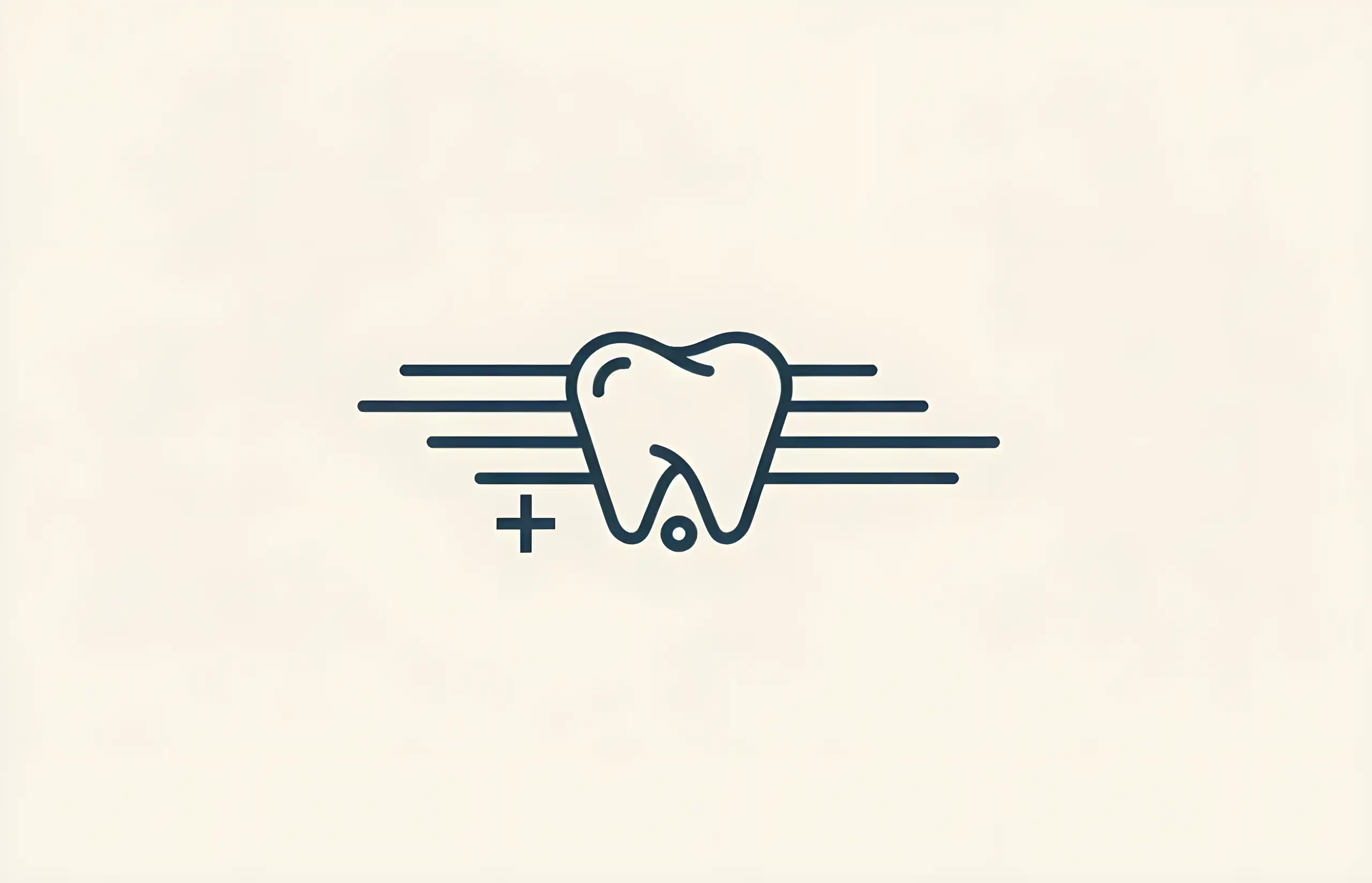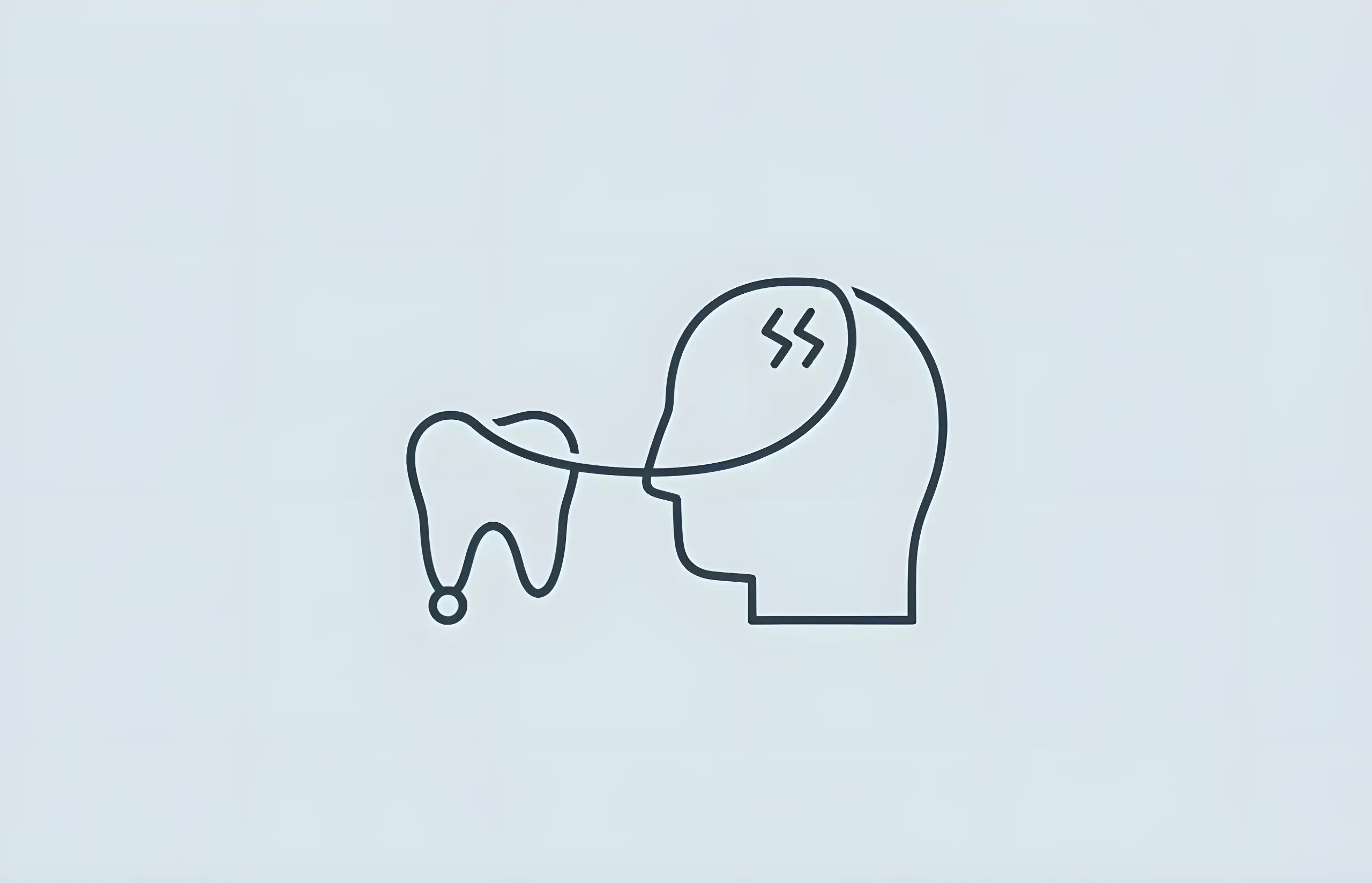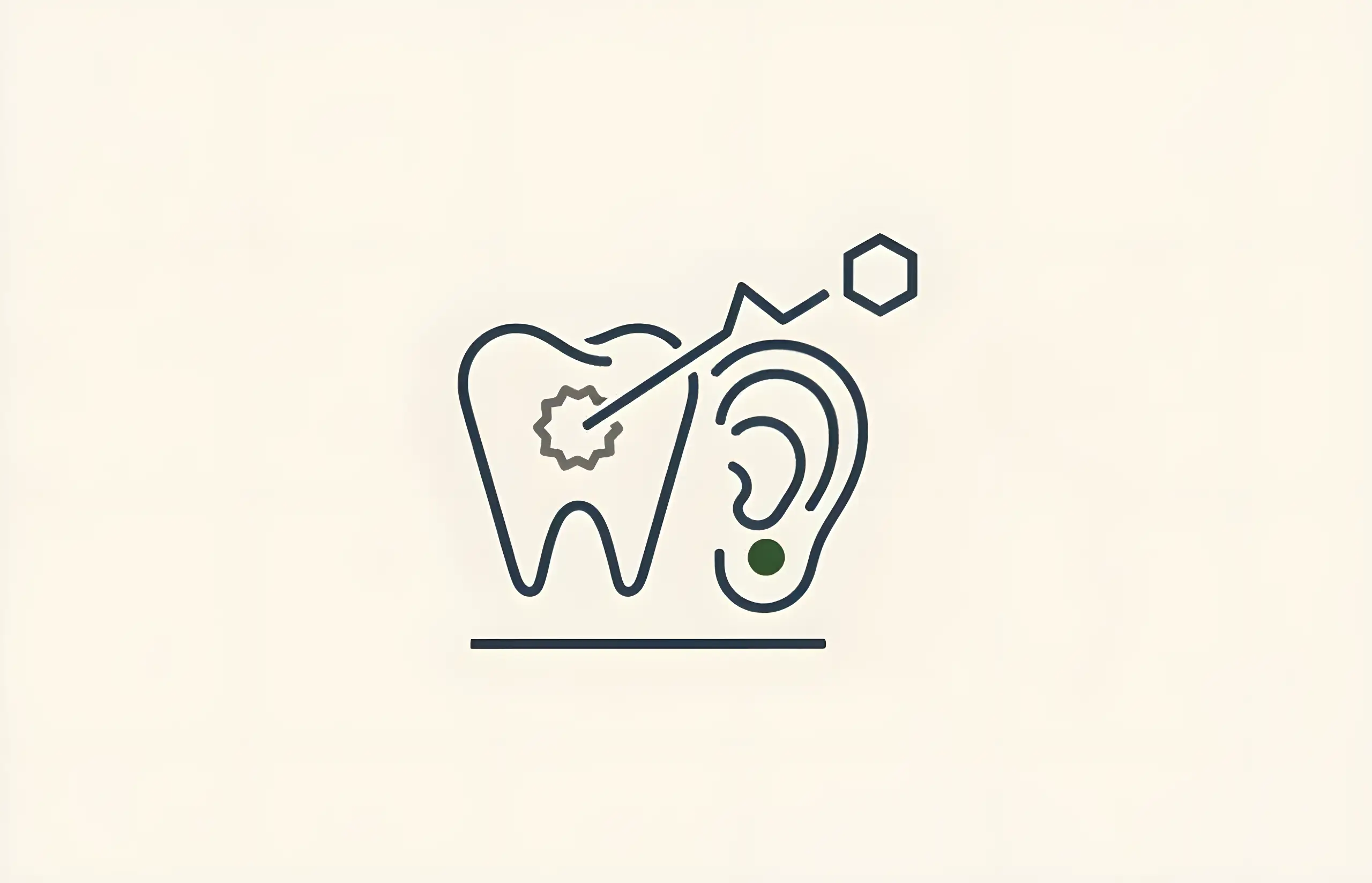While your ear and jaw are distinct parts of the body, they are close in proximity. And this may be the main reason why you might sometimes experience toothache and ear pain simultaneously.
A medical problem in your mouth, jaw, or ear can cause pain, or you could experience tooth and ear pain because of referred pain, which essentially means that a part of your body may feel pain although the source of pain is elsewhere.
In this article, we'll discuss what could be the causes of toothache and ear pain on the same side.
Causes of Toothache and Ear Pain
Several conditions may cause toothache and ear pain at the same time. This is often because of the proximity of the TMJ (temporomandibular joint) or jaw joint to the ear. And, if you have an infected or decayed tooth, the pain from the tooth can radiate to the ear, and you can feel it there.
On the other hand, a toothache may be a sign of ear pain, where you may experience symptoms associated with flu or cold. This section will discuss the various causes of toothache and ear pain in depth.
TMJ Disorders
Pain in your jaw and ear may be related to the TMJ (temporomandibular joint), which includes the jaw joint, as well as the muscles around it. A TMJ disorder can cause inflammation and pain in the TMJ, which in turn can cause jaw and ear pain, the most common symptoms of the condition.
TMJ problems may also cause eye pain, headaches, and sinus pressure. TMJ pain can be caused by several factors and conditions such as teeth or jaw alignment problems, bruxism (grinding the teeth), muscle injuries, and arthritis.
Research shows that temporomandibular disorders are the most common type of non-odontogenic orofacial pain, affecting 36% of adults aged 20-49 years. Patients typically present with pain affecting the face, head, TMJ and/or teeth, limitations in jaw movement, and sounds in the TMJ during jaw movements.
Dental Problems
A bacterial build-up in the teeth and gums can cause dental problems such as cavities, abscesses, and periodontal disease. These dental issues can cause damage to your teeth and mouth, and if left untreated for a long time, they can cause toothache and ear pain. Sometimes, a tooth injury can also cause tooth and ear pain.
Dental abscesses arise from dental caries, trauma, or failed root canal treatment. As infection grows within the tooth's limited space, it compresses the inner dentine walls, causing severe pain. This pain can radiate to surrounding structures including the ear, particularly when upper molars are affected due to their proximity to the maxillary sinus and ear structures.
Patients with dental abscesses typically present with severe pain, fever, and difficulty chewing. The trigeminal nerve, which represents over 50% of the sensory cortex, can refer pain from infected teeth to the ear and other facial areas.
Bruxism
Grinding your teeth, known as bruxism, can cause many problems, from TMJ disorder to damaging your teeth, impacting the alignment of your teeth, causing teeth to wear, straining your jaw muscles, and jaw or ear pain.
Studies show bruxism affects up to 31% of adults. While the evidence linking sleep bruxism and TMD pain is described as inconclusive, there appears to be an association between bruxism, temporomandibular disorders, and psychological factors. The clenching and grinding can overload chewing structures, leading to muscle pain and TMJ inflammation that radiates to the ear.
Sinusitis
If you suffer from allergies or have a cold, this can cause your sinuses to become irritated and inflamed. The sinus inflammation can cause pressure against your inner ear and roots of the teeth, mimicking ear pain or toothache.
Research indicates that approximately 10-40% of chronic maxillary sinusitis cases are odontogenic (arising from dental sources). The maxillary first molar is most commonly associated with odontogenic sinusitis (55%), followed by the maxillary second molar (34%).
Common symptoms include facial pressure, postnasal drainage, congestion, and maxillary toothache. Interestingly, dental pain is often absent in odontogenic sinusitis, which can complicate diagnosis. These infections are typically polymicrobial with predominantly anaerobic organisms.
Arthritis
Osteoarthritis affecting the TMJ can cause pain in your jaw and ear. Over time, the cartilage around the TMJ joint may wear, resulting in joint stiffness and pain. TMJ pain can also be caused by autoimmune conditions such as psoriatic or rheumatoid arthritis that may cause sporadic flare-ups, joint stiffness, and pain.
Ear Infection
You can experience acute pain in your ear, behind or around it, because of an ear infection, and sometimes the pain can radiate to your teeth, jaw, or sinuses. Ear infections are mostly caused by bacteria or viruses.
They can also be caused by an ear injury or water exposure while swimming (causing swimmer's ear). If untreated, it can lead to jaw and ear pain.
Treatment for Toothache and Ear Pain
The treatment for tooth and ear pain varies depending on the cause. If the pain is persistent, it is good to consult your dentist, who will determine the cause of the same by performing a thorough examination and taking an X-ray to rule out a TMJ disorder or any dental infections.
Any dental condition may require treatments such as deep cleaning, a root canal procedure, or tooth removal. Research emphasizes that dental pain is best managed by operative intervention, and analgesics, reassurance, and access to dental care are essential.
However, if the pain is not related to TMJ or your teeth, it could be sinusitis, an ear infection, or arthritis. You may have to consult your medical practitioner, who can treat you accordingly. For odontogenic sinusitis, medical management combined with dental intervention resolves 52% of cases, while 48% may require endoscopic sinus surgery.
Home Remedies for Toothache and Ear Pain
If the toothache and ear pain are because of inflammation, you can take an anti-inflammatory such as ibuprofen that can be purchased over-the-counter. Further, applying a cold or warm compress to the side of your face where you're feeling pain can relieve discomfort.
If you're experiencing pain because of bruxism, then apart from wearing a mouth guard or bite splint, you can prevent pain by physical therapy, mindfulness exercises, massage therapy, and meditation.
If you suffer from allergies, which cause sinus inflammation, you can take allergy medications, antihistamines, or use any other preventative methods after consulting your doctor. In addition, prevent tooth infections, cavities and abscesses by maintaining good oral hygiene and following a healthy diet to prevent bacterial build-up in the mouth.
Summing Up
In conclusion, as we have discussed in the article, there are several reasons why you may be experiencing tooth and ear pain on the same side. So, if you're having persistent pain that seems to be worsening, it is highly recommended that you consult your doctor, who can determine the cause of the pain and treat it before it gets worse.
Early intervention is crucial—untreated dental abscesses can spread to deep neck spaces or cause intracranial infections, with serious complications in rare cases. Your dentist will perform a thorough examination and may take X-rays to identify whether the pain originates from TMJ disorders, dental infections, or other causes requiring specialist referral.
Sources and References
-
[1]
Temporomandibular disorders: a review of current concepts in aetiology, diagnosis and managementOral Surgeryhttps://pmc.ncbi.nlm.nih.gov/articles/PMC8631581/
-
[2]
Understanding and managing dental and orofacial pain in general practiceThe British Journal of General Practicehttps://pmc.ncbi.nlm.nih.gov/articles/PMC4838424/
-
[3]
Odontogenic sinusitis: A review of the current literatureLaryngoscope Investigative Otolaryngologyhttps://pmc.ncbi.nlm.nih.gov/articles/PMC5915825/
- [4]
All sources accessed and verified on . Medical information reviewed for accuracy and compliance with current guidelines.
Related Articles

How Long Does It Take Amoxicillin to Work on a Toothache?
Clinical Response Timeline (48-72 Hours Pain Relief, 88.2% Success Rate, 3-7 Days Treatment)

Can Toothache Cause a Headache?
Understanding the connection between toothaches and headaches, including causes such as dental infections, tooth damage, bruxism, TMJ disorders, and how to identify dental-related headaches
About The Dental Guide
The Dental Guide is a trusted online resource providing evidence-based information about dental health, treatments, and procedures. Our content is created and reviewed by qualified dental professionals to help you make informed decisions about your oral health.
Our Mission
- Evidence-based dental information
- Expert-reviewed content
- Clear, accessible explanations
- Latest treatment options
- Patient-focused guidance
Editorial Standards
- GDC-registered dental professionals
- Peer-reviewed sources
- Regular content updates
- Medical accuracy verification
- Transparent authorship
Important Notice
The information on The Dental Guide is for educational purposes only and should not replace professional dental advice. Always consult with a qualified dentist for diagnosis and treatment recommendations tailored to your individual needs and circumstances.
Medically Reviewed
Reviewed by Dr. Nasim Mechoui , BDS (Bristol)
Share this article
Comments & Discussion
Have questions about dental implants? Share your thoughts or experiences.
